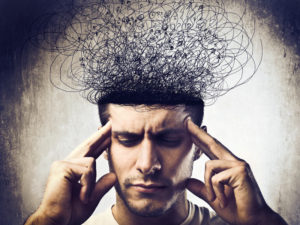AnxietyPath is a safe community environment supported by professional counselors. We are a free self help destination to receive support and guidance for recovery from anxiety and phobias
How AADD-ADHD May Relate To Anxiety Disorders
 Many people that I have met over the years who have suffered from anxiety disorders were also diagnosed with Adult Attention Deficit/Hyperactivity Disorder ( AADD-ADHD ). At first, I thought that was a strange coincidence, but then I realized that there must be some commonalities among the two disorders.
Many people that I have met over the years who have suffered from anxiety disorders were also diagnosed with Adult Attention Deficit/Hyperactivity Disorder ( AADD-ADHD ). At first, I thought that was a strange coincidence, but then I realized that there must be some commonalities among the two disorders.
Also, what I noticed over the years, is that every single person that I knew that was diagnosed with AADD-ADHD improved significantly as their anxiety disorder improved. And in each case where recovery was created for the anxiety disorder, the AADD-ADHD disappeared.
As we know, anxiety is our “self-defense system”; it assesses danger and causes a response from us in an attempt to protect ourselves from perceived danger. When we have an anxiety disorder, our self-defense system has deemed something dangerous that poses no threat to us.
When our anxiety is on “alert” and we are experiencing levels of anxiety, it will manifest in many ways. A very common manifestation of anxiety is obsessing. Obsessing is experienced by everyone to some degree, regardless of the type of anxiety disorder they suffer from. Obsessing is the first reaction we have to perceived danger.
So if we found ourselves in a real-life potentially dangerous situation, the first thing we would naturally do is figure out a way to escape the situation. I often use getting a flat tire as an example to demonstrate this. When a person gets a flat tire, the first thing they do is run through a list of questions, such as; Do I have a spare? Where is the closest service station? Who can help me? Do I have a mechanics number? We go through a process of all the possibilities of how we can get out of this situation. After we identify all the possibilities, then we choose the course of action we will take, and then act upon it.
The same thing holds true for when our anxiety disorder is triggered. Our mind begins obsessing, running through possible scenarios, all in an effort to control our perceived threat of danger. Being that there is no end to the irrational threat of danger, our mind continues playing the possibilities over and over.
Our natural self-defense system is designed to protect us. Once our anxiety deems something dangerous, it has to continue sounding the alarm until we are removed from the danger to help us protect ourselves.
Our anxiety is stronger and louder than anything else in our lives. School work, careers, hobbies, interests, conversations, shopping; you name it and there is nothing as urgent as the natural self-defense system that is trying to protect us.
So its very common for us to display symptoms of AADD-ADHD. How can we expect ourselves to focus or concentrate on anything when we have an internal alarm sounding? Instinctively our minds and bodies are responding to danger, even if we are trying to write a grocery shopping list.
What I am saying here is not to minimize the severity of AADD-ADHD that many people suffer from. The purpose of writing this post is simply to bring awareness to how anxiety disorders can affect all areas of our life.
When someone comes to me and they tell me they were diagnosed with AADD-ADHD, the first thing I say to them is let’s handle one thing at a time. We can’t change any one thing overnight, therefore we will certainly not be able to change two. So let’s focus on one thing, work towards recovery of this one thing, and then go back and see what else needs change.
As I mentioned, every person I know that has created recovery from anxiety disorders has also recovered from AADD-ADHD.
Maybe I am biased in saying this, but I believe that if a person has any manifestation of an anxiety disorder, this must be addressed first before trying to fully diagnose or treat any other disorder. As long as an anxiety disorder is running unmanaged, it is near impossible to understand a person’s behavior in full.
Anxiety disorders manifest in so many ways. They affect our lives in so many ways. Each person is different in the way they respond to their specific anxiety disorder. To start labeling and diagnosing various behavior I believe only complicates the situation. Anxiety disorders are difficult enough on their own, let’s not make it worse.
The process for anxiety disorder recovery is the same whether you may have AADD-ADHD or not. Nothing changes in terms of anxiety disorder recovery.
Practice your tools. Make a “toolbox”. Implement the tools into your daily routine as needed.
Self-care practices! Water consumption, diet, exercise, sleep, meditation, yoga; make slight changes to a healthier lifestyle.
“Manage your time, before your time manages you!”
Make notes or a daily schedule to help keep you on track. Use an alarm to help remind you to do the things you need to do. You have to put a consistent effort to create sustained change.
Never give up! Persistence!
Fear To Fearless
Categories
© 2020 AnxietyPath Powered by G SOUL INC